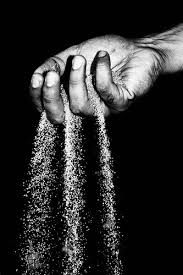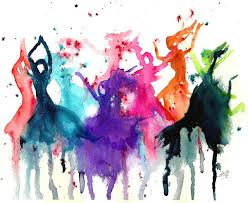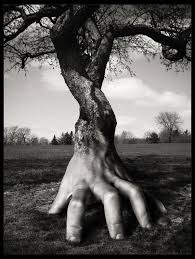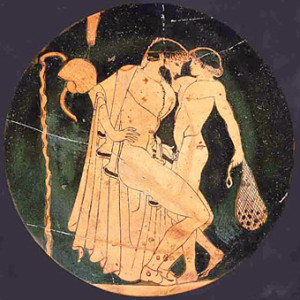In larger terms it is futile to question whether or not dreams are true, for they simply are. We do consider a dream true, however, if its events later occur in fact.
In the life of psyche a dream is no more or less “true,” whether or not it is duplicated in waking life. Dream events happen in a different context — one, we might say, of the imagination. Here we experience a valid reality that exists on its own, so to speak; one in which the psyche’s own language is given greater freedom.
Some of us may try to remember our dreams, but none of us have to relate to dream reality as we must to physical life.
To some extent, however, we form physical events while we are dreaming. Then, freed from waking limitations, we process our experience, weigh it according to our own intents and purposes, correlate it with information so vast we could not be consciously aware of it. In most dreams we do not simply think of a situation. We imaginatively become part of it. It is real in every fashion except that of physical fact.
When we meet with any fact, we encounter the tail end of a certain kind of creativity. The psyche, however, is responsible for bringing facts into existence. In that reality a so-called fact is equally true or equally false. The dream that we remember is already a translation of a deeper experience.
It is cast for us so that it bridges self. Dreams serve as dramas, transferring experience from one level of the psyche to another. In certain portions of sleep, our experience reaches into areas of being so vast that the dream is used to translate it for us.
The power to dream springs from that source. Dreaming is not a passive activity. It demands a peculiar and distinctive mixture of various kinds of consciousness, and the transformation of “nonphysical perception” into symbols and codes that will be sensually understood, though not directly experienced as in waking experienced as in waking experience.
We take dreaming for granted, yet it is the result of a characteristic ability that is responsible for the very subjective feeling that we call conscious life. Without it our normal consciousness would not be possible.
A spoken language is, again, dependent upon other languages that could possibly be spoken, and thus its sounds rise into prominence and order because of the silences and pauses between them; so our waking consciousness is dependent upon what we think of as sleeping or dreaming consciousness. It rises into prominence in somewhat the same fashion, riding upon other possible versions of itself; alert only because — in our terms — of hidden pauses within its alertness.
The ability to dream presupposes the existence of experience that is not defined as physical fact. It presupposes a far greater freedom in which objects appear or are dismissed with equal ease, a subjective framework in which the individual freely expresses what he or she will in the most direct of fashions, yet without physical contact in usual terms.
The reality represents our origin, and is the natural environment in which the psyche resides. Our beliefs, cultural background, and to some extent our languages, set up barriers so that this dream dimension seems unreal to us. Even when we catch ourselves in the most vivid of dream adventures, or find ourselves traveling outside of our bodies while dreaming, we still do not give such experiences equal validity with waking ones.
Subjectively speaking, we are everywhere surrounded by our own greater reality, but we do not look in the right places. We have been taught not to trust our feelings, our dreams, or our imagination precisely because these do not often fit the accepted reality of facts.
They are the creators of facts, however. In no way do I mean to demean the intellect. It is here, however, that the tyranny of the fact world holds greatest sway. The intellect has been denied its wings. Its field of activity has been limited because we have given it only facts to go on.
Biologically, we are quite capable of dealing with dreaming and waking reality both, and of forming a far more effective synthesis in that regard. All of our creative impulses arise from that hidden dimension — the very impulses that formed our greatest cities, our technology, and the physical cement that binds our culturally organized world.
The creative impulses are behind our languages, yet often we use the languages to silence rather than free inner communication. There have always been rhythms in consciousness that are not historically obvious. At certain times some behavior has been primarily expressed in the waking state, and sometimes in the dream state. The emphasis is never static, but ever-changing. In some periods, then, the normal behavior was “more dreamlike,” while more specific developments occurred in the dream state, which was then the more clear or specified of the two. Men went to sleep to do their work, in other words, and the realm of dreams was considered more real than waking reality. Now the opposite is true.






















































































